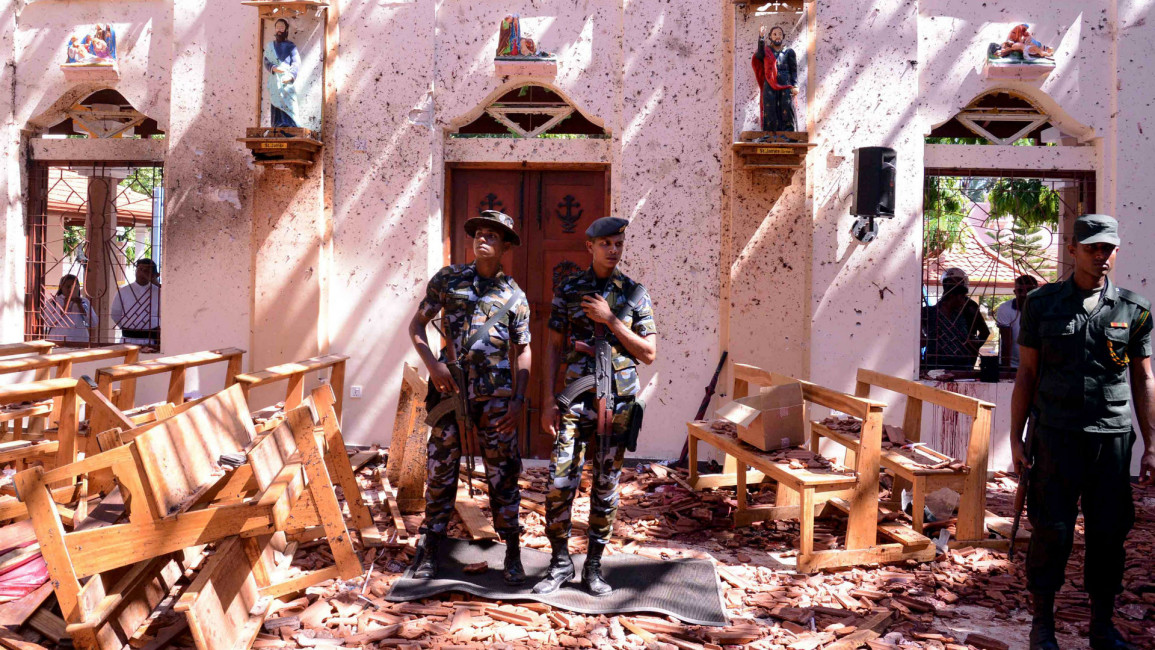Sri Lanka attacks: Eight arrested in connection with deadly Easter bombings
Eight people have been arrested in connection with a string of deadly blasts that killed more than 200 people in Sri Lanka on Sunday, the country's prime minister said.
Prime Minister Ranil Wickremesinghe said "so far the names that have come up are local," but that investigators would look into whether the attackers had any "overseas links".
He also acknowledged that "information was there" about possible attacks.
"While this goes on we must also look into why adequate precautions were not taken," he said.
But he said the government's first priority would be to "apprehend the terrorists".
"First and foremost we have to ensure that terrorism does not lift its head in Sri Lanka."
A total of eight blasts tore through high-end hotels and churches across Sri Lanka on Sunday, in the worst violence since the country's civil war ended a decade ago.
At least two of the blasts involved suicide bombers, sources told AFP.
Police spokesman Ruwan Gunasekera said the death toll had risen to at least 207, with over 450 people wounded.
Ravinatha Aryasinha, secretary to the foreign ministry, told reporters there were 27 bodies of suspected foreign nationals in the Colombo National Hospital.
A police official said earlier that 35 foreigners were among the dead and hospital sources said British, Dutch and American citizens had been killed, with Britons and Japanese also injured.
A Portuguese man and two Chinese citizens were among the dead, news agencies in their countries reported.
There were no immediate claims of responsibility for the blasts, but documents seen by AFP show that Sri Lanka's police chief Pujuth Jayasundara issued an intelligence alert to top officers ten days ago, warning that suicide bombers planned to hit "prominent churches".
"A foreign intelligence agency has reported that the NTJ (National Thowheeth Jama'ath) is planning to carry out suicide attacks targeting prominent churches as well as the Indian high commission in Colombo," the alert said.
The NTJ is a radical Muslim group in Sri Lanka that was linked last year to the vandalisation of Buddhist statues.
The government ordered an immediate nationwide curfew "until further notice", and a "temporary" social media ban "in order to prevent incorrect and wrong information being spread".


![President Pezeshkian has denounced Israel's attacks on Lebanon [Getty]](/sites/default/files/styles/image_684x385/public/2173482924.jpeg?h=a5f2f23a&itok=q3evVtko)



 Follow the Middle East's top stories in English at The New Arab on Google News
Follow the Middle East's top stories in English at The New Arab on Google News


